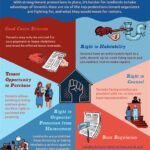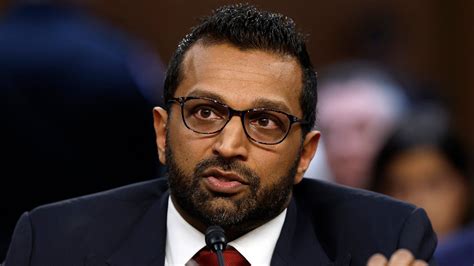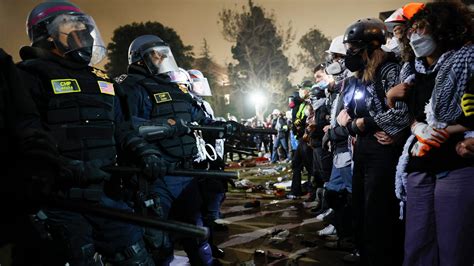
Finland’s President Alexander Stubb has characterized Russian President Vladimir Putin’s decision to invade Ukraine as a “huge strategic blunder,” emphasizing the miscalculation of Ukrainian resistance and the subsequent strengthening of NATO.
President Stubb, in a recent interview, stated that Putin “thought he would win the war in a couple of weeks,” but instead, the invasion has led to significant geopolitical shifts, including Finland’s decision to abandon its long-standing neutrality and join NATO. “Putin wanted less NATO, now he has more,” Stubb remarked, underscoring the counterproductive outcome of Russia’s actions.
The Finnish president highlighted the unity and resolve demonstrated by both the European Union and the United States in response to the conflict, noting that this solidarity was likely unexpected by the Kremlin. He also stressed the importance of continued support for Ukraine, both in terms of military aid and humanitarian assistance, asserting that the outcome of the war will significantly impact the future of European security.
Stubb’s assessment comes at a critical juncture in the conflict, as Ukraine continues to resist Russian aggression and seeks to reclaim its territories. The war has not only reshaped the security landscape of Europe but has also had profound economic and social consequences, affecting global energy markets and supply chains.
The article below will provide a more detailed examination of President Stubb’s remarks, the implications of Finland’s NATO membership, and the broader context of the ongoing conflict in Ukraine.
Finland’s President Stubb Deems Putin’s Ukraine Invasion a ‘Huge Strategic Blunder’
Finland’s President Alexander Stubb has delivered a scathing assessment of Russian President Vladimir Putin’s decision to launch a full-scale invasion of Ukraine, labeling it a “huge strategic blunder” that has backfired spectacularly for Russia. Stubb’s remarks, made in a recent interview, underscore the widespread belief among Western leaders that Putin fundamentally miscalculated the situation, leading to unforeseen consequences for Russia’s geopolitical standing and European security.
According to President Stubb, the Russian leader’s initial expectation was a swift victory. “Putin thought he would win the war in a couple of weeks,” Stubb stated. However, the reality has been starkly different. The Ukrainian people have mounted a fierce and determined resistance, bolstered by military and financial support from Western nations. This resistance has not only stalled Russia’s advance but has also inflicted significant losses on the Russian military, both in terms of personnel and equipment.
One of the most significant and immediate consequences of the war has been the expansion of NATO. Historically, both Finland and Sweden maintained a policy of neutrality, carefully balancing their relationships with both Russia and the West. However, Russia’s aggression in Ukraine fundamentally altered the security calculus for both countries. Faced with a perceived existential threat, Finland and Sweden swiftly applied for NATO membership, a move that represents a profound shift in the European security architecture.
President Stubb emphasized the irony of the situation, stating, “Putin wanted less NATO, now he has more.” This succinctly captures the counterproductive nature of Putin’s actions. Instead of weakening the alliance, the war in Ukraine has served to strengthen NATO, expanding its borders and reinforcing its unity. Finland’s accession to NATO, in particular, doubles the alliance’s border with Russia, presenting new strategic challenges and considerations for Moscow.
The unity displayed by the European Union and the United States in response to the invasion also appears to have surprised Putin, according to President Stubb. The EU has imposed unprecedented sanctions on Russia, targeting key sectors of its economy and individuals close to the Kremlin. The United States has also provided substantial military and financial assistance to Ukraine, while simultaneously bolstering its military presence in Eastern Europe to deter further Russian aggression. This coordinated response has demonstrated a level of solidarity and resolve that Putin likely did not anticipate.
“I think that Putin thought that the European Union would fall apart. He thought that the United States wouldn’t care. He was wrong,” Stubb asserted, highlighting the miscalculations that underpinned Putin’s decision-making.
President Stubb’s remarks come at a crucial moment in the conflict. After more than two years of intense fighting, the war in Ukraine remains a bloody and protracted struggle. Ukraine continues to resist Russian forces, but it faces significant challenges, including a shortage of ammunition and manpower. The outcome of the war will have far-reaching implications for the future of European security, the international order, and the balance of power between Russia and the West.
Stubb stressed the importance of continued support for Ukraine, both in terms of military aid and humanitarian assistance. He argued that allowing Russia to prevail in Ukraine would embolden authoritarian regimes around the world and undermine the principles of international law and sovereignty. “We need to support Ukraine as long as it takes,” Stubb said, echoing the sentiment of many Western leaders.
The Finnish president also addressed the potential for a negotiated settlement to the conflict. While acknowledging the difficulties involved in reaching a lasting peace agreement, he emphasized the importance of keeping diplomatic channels open and exploring all possible avenues for de-escalation. However, he also made it clear that any settlement must respect Ukraine’s sovereignty and territorial integrity.
Finland’s own experience in dealing with Russia provides valuable insights into the challenges of managing relations with a powerful and often unpredictable neighbor. Finland shares a 1,340-kilometer border with Russia, and its history is marked by periods of conflict and cooperation. During the Cold War, Finland pursued a policy of neutrality known as “Finlandization,” which involved maintaining close ties with the Soviet Union while also preserving its democratic institutions and market economy.
However, the collapse of the Soviet Union and Russia’s subsequent aggression in Ukraine have led to a fundamental reassessment of Finland’s security posture. The decision to join NATO represents a historic shift in Finnish foreign policy and reflects a growing concern about Russia’s intentions in the region.
Stubb’s assessment of Putin’s miscalculations extends beyond the military and geopolitical spheres. The economic consequences for Russia have also been significant. The sanctions imposed by the West have crippled key sectors of the Russian economy, including its energy industry, and have limited its access to international financial markets. The war has also led to a brain drain, as many skilled professionals and entrepreneurs have fled Russia in search of greater economic opportunities and political freedoms.
Furthermore, the war has exposed deep-seated divisions within Russian society. While Putin enjoys significant support among certain segments of the population, there is also growing dissent and discontent, particularly among those who have lost loved ones in the conflict or who are concerned about the long-term economic consequences of the war.
The international condemnation of Russia’s actions has also isolated Moscow on the world stage. Russia has been suspended from numerous international organizations, and its relations with many countries have deteriorated sharply. This isolation has further weakened Russia’s influence and undermined its ability to project power beyond its borders.
Looking ahead, the war in Ukraine is likely to have a lasting impact on the global order. It has accelerated the trend towards a more multipolar world, in which power is distributed among a greater number of actors. It has also highlighted the importance of alliances and partnerships in maintaining peace and security.
For Finland, NATO membership represents a significant step towards strengthening its security and deterring potential aggression. As a member of the alliance, Finland is now covered by NATO’s collective defense guarantee, which means that an attack on Finland would be considered an attack on all NATO members. This provides a powerful deterrent against any potential Russian aggression.
Finland also brings significant military capabilities to the alliance. The Finnish military is well-trained and equipped, and it has a long tradition of defending its territory. Finland also has a large reserve force, which can be mobilized quickly in the event of a crisis.
However, NATO membership also comes with responsibilities. Finland will be expected to contribute to the alliance’s collective defense efforts, including participating in military exercises and deployments. Finland will also need to coordinate its defense policies with those of other NATO members.
The war in Ukraine has also highlighted the importance of resilience and preparedness. Finland has long been known for its comprehensive approach to security, which includes not only military defense but also economic security, energy security, and cyber security. This approach has helped Finland to weather the challenges of the current crisis and to maintain its stability and prosperity.
In conclusion, President Stubb’s assessment of Putin’s invasion of Ukraine as a “huge strategic blunder” is a well-founded and accurate portrayal of the situation. The war has backfired spectacularly for Russia, strengthening NATO, uniting the West, and exposing Russia’s own weaknesses. The conflict is likely to have a lasting impact on the global order, and it underscores the importance of alliances, partnerships, and resilience in maintaining peace and security. The future remains uncertain, but one thing is clear: the war in Ukraine has fundamentally altered the geopolitical landscape of Europe and the world.
In-Depth Analysis:
President Stubb’s remarks provide a valuable insight into the thinking of Western leaders regarding the war in Ukraine. His assessment highlights the degree to which Putin’s actions have been counterproductive, achieving the opposite of what he intended. The decision to invade Ukraine was predicated on a series of miscalculations, including the underestimation of Ukrainian resistance, the overestimation of Russian military capabilities, and the misjudgment of the West’s resolve.
The expansion of NATO is perhaps the most visible and significant consequence of Putin’s actions. For decades, Russia has sought to limit NATO’s expansion, viewing it as a threat to its security. However, the invasion of Ukraine has prompted two historically neutral countries, Finland and Sweden, to join the alliance, effectively doubling NATO’s border with Russia.
This expansion has several important implications. First, it strengthens NATO’s military posture in the Baltic Sea region, which is a strategically important area. Second, it provides NATO with new bases and infrastructure, which can be used to project power into Eastern Europe. Third, it sends a clear message to Russia that its aggression will not be tolerated.
The unity displayed by the European Union and the United States in response to the invasion has also been a key factor in Ukraine’s ability to resist Russian aggression. The sanctions imposed by the West have crippled key sectors of the Russian economy, limiting its ability to finance the war. The military and financial assistance provided to Ukraine has also been crucial in helping it to defend itself.
However, the war in Ukraine is far from over. Ukraine continues to face significant challenges, including a shortage of ammunition and manpower. Russia still controls a significant portion of Ukrainian territory, and it continues to launch attacks on Ukrainian cities and infrastructure.
The outcome of the war will depend on several factors, including the continued support of the West, the resilience of the Ukrainian people, and the ability of Russia to sustain its military operations. A negotiated settlement to the conflict is possible, but it will require both sides to make concessions.
The war in Ukraine has also highlighted the importance of resilience and preparedness. Countries around the world are now re-evaluating their security policies and taking steps to strengthen their defenses. This includes investing in new military capabilities, improving cyber security, and diversifying energy supplies.
The war in Ukraine is a tragedy, but it has also provided a valuable lesson about the importance of standing up to aggression and defending democratic values. The world must continue to support Ukraine as long as it takes to achieve a just and lasting peace.
Background Information:
The conflict in Ukraine has its roots in the complex history of the region, including Ukraine’s long struggle for independence from Russia, the legacy of Soviet rule, and the geopolitical competition between Russia and the West.
Ukraine declared its independence from the Soviet Union in 1991, following a referendum in which the vast majority of Ukrainians voted in favor of independence. However, Russia has never fully accepted Ukraine’s independence, viewing it as part of its sphere of influence.
In 2014, Russia annexed Crimea, a Ukrainian territory with a majority-Russian population, following a pro-Western revolution in Ukraine. Russia also supported separatists in eastern Ukraine, who launched an armed rebellion against the Ukrainian government.
The conflict in eastern Ukraine has been ongoing since 2014, and it has claimed the lives of more than 14,000 people. In February 2022, Russia launched a full-scale invasion of Ukraine, escalating the conflict to a new level.
Russia’s stated goals in the invasion were to “demilitarize” and “denazify” Ukraine, as well as to protect Russian-speaking populations from persecution. However, these claims have been widely dismissed as pretexts for aggression.
The invasion of Ukraine has been condemned by the international community, and Russia has been subjected to widespread sanctions. The war has had a devastating impact on Ukraine, causing widespread destruction, displacement, and loss of life.
Expanded Context:
The war in Ukraine is not just a regional conflict; it is a global event with far-reaching implications. It has exposed the fragility of the international order and the dangers of unchecked aggression. It has also highlighted the importance of alliances, partnerships, and resilience in maintaining peace and security.
The war has accelerated the trend towards a more multipolar world, in which power is distributed among a greater number of actors. This trend is likely to continue in the years ahead, as countries around the world seek to assert their interests and influence.
The war has also highlighted the importance of economic security. Countries are now taking steps to diversify their economies and reduce their dependence on single suppliers. This includes investing in renewable energy, developing domestic manufacturing capacity, and forging new trade partnerships.
The war has also underscored the importance of cyber security. Cyberattacks have become an increasingly common tool of statecraft, and countries must be prepared to defend themselves against these attacks. This includes investing in cyber defense capabilities, improving cyber security awareness, and working with international partners to combat cybercrime.
The war in Ukraine is a reminder that peace cannot be taken for granted. It requires constant vigilance, strong alliances, and a willingness to stand up to aggression. The world must learn the lessons of this conflict and work together to build a more peaceful and secure future.
The long-term consequences of the war in Ukraine are still unfolding. However, it is clear that the conflict will have a profound impact on the global order, the European security architecture, and the relationship between Russia and the West. The world must be prepared to deal with these consequences and to work together to build a more stable and prosperous future.
Frequently Asked Questions (FAQ):
1. Why does President Stubb consider Putin’s invasion of Ukraine a “huge strategic blunder”?
President Stubb views the invasion as a blunder because it backfired on Putin’s objectives. Instead of weakening NATO and asserting dominance over Ukraine, the invasion strengthened NATO with the addition of Finland and Sweden, unified the West against Russia, and exposed the limitations of the Russian military. The invasion also resulted in significant economic consequences for Russia due to international sanctions.
2. How has Finland’s decision to join NATO impacted the security landscape in Europe?
Finland’s NATO membership has significantly altered the security landscape by doubling NATO’s border with Russia and increasing the alliance’s military presence in the Baltic Sea region. This strengthens NATO’s defensive capabilities and enhances its ability to deter Russian aggression, while also presenting new strategic considerations for Moscow.
3. What miscalculations did President Stubb believe Putin made prior to invading Ukraine?
President Stubb believes Putin miscalculated the strength and resilience of Ukrainian resistance, the unity and resolve of the European Union and the United States, and the potential for NATO expansion in response to Russian aggression. He thought the EU would fall apart and the US wouldn’t care, but he was wrong.
4. What is Finland’s historical relationship with Russia, and how has it influenced its decision to join NATO?
Finland shares a 1,340-kilometer border with Russia and has a history marked by periods of conflict and cooperation. During the Cold War, Finland pursued a policy of neutrality. However, Russia’s aggression in Ukraine led to a reassessment of Finland’s security posture, prompting the decision to join NATO for enhanced security and deterrence.
5. What are the potential long-term implications of the war in Ukraine for the global order and the relationship between Russia and the West?
The war is likely to accelerate the trend towards a more multipolar world, highlighting the importance of alliances and partnerships in maintaining peace. It will also reshape the European security architecture and lead to a fundamentally altered relationship between Russia and the West, characterized by increased tension and distrust.









